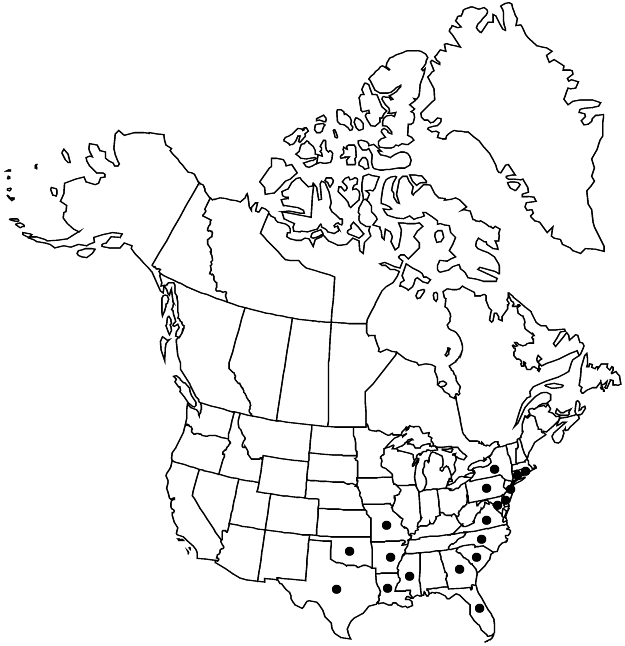Lyonia mariana
Edinburgh New Philos. J. 17: 159. 1834,.
Shrubs, to 1.5 m. Stems erect, terete to slightly angled. Leaves deciduous; blade narrowly to widely elliptic, ovate, or obovate, (2.5–) 3–8 (–10.5) × 1–4 (–5) cm, membranous, base narrowly cuneate to rounded, margins entire, plane to slightly revolute, apex acute to rounded-mucronate or slightly acuminate, surfaces scattered, multicellular, glandular short-headed-hairy, not lepidote, otherwise glabrous or hairy on major veins, intramarginal vein absent. Inflorescences fascicles, developing from buds along distal portion of stems of previous year; bracts 1 per flower, linear-lanceolate, to 4.5 mm. Pedicels glandular-hairy, not lepidote. Flowers: calyx lobes 3–9.5 × 1–4 mm, glandular-hairy, not lepidote; corolla usually white, rarely pink, cylindric (base not swollen), 7–14 × 4.5–9 mm; filaments 4–7 mm, long-hairy, especially near base, with 2 ± well-developed spurs. Capsules ovoid, 4–6.5 × 3–6 mm, apex strongly constricted, short-headed-hairy, otherwise glabrous or hairy; sutures usually remaining attached to adjacent valve; placentae central to nearly basal. 2n = 24.
Phenology: Flowering spring.
Habitat: Open, acid, dry to moist pine and/or oak forests, flatwoods, or savannas, often in ecotonal situations, less often in shrub bogs, pond margins, and acid swamps
Elevation: 0-200 m
Distribution

Ark., Conn., Del., Fla., Ga., La., Md., Miss., Mo., N.J., N.Y., N.C., Okla., Pa., R.I., S.C., Tex., Va.
Discussion
Leaves of Lyonia mariana (and probably other species as well) contain andromedotoxin and are known to cause livestock poisoning; the species is occasionally used as an ornamental. The western populations tend to be much hairier than those of the Atlantic coastal plain.
Selected References
None.
Lower Taxa
"entire" is not a number.